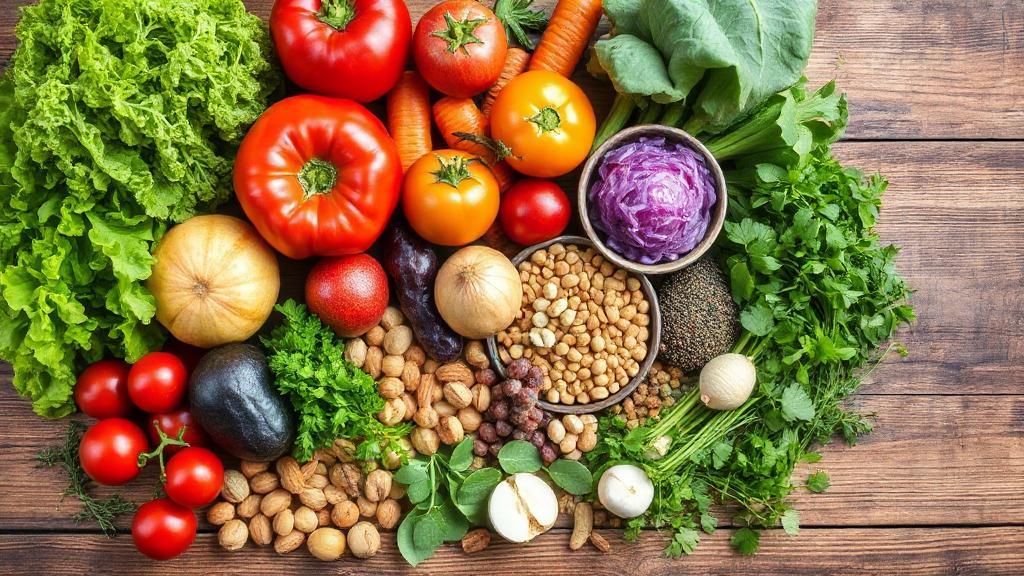Effective Strategies to Reduce Inflammation Naturally
Inflammation is a double-edged sword: while it’s a vital part of your body’s defense mechanism against injury and infection, chronic inflammation can quietly contribute to a host of health problems, including heart disease, diabetes, arthritis, and even certain cancers. Fortunately, a holistic, lifestyle-based approach can help you manage and reduce inflammation naturally.
Understanding Inflammation and Its Impact
Acute inflammation is your body’s immediate, beneficial response to harm—think swelling after a sprain or the redness around a cut. Chronic inflammation, however, is a low-grade, persistent state that can silently damage tissues over time. This ongoing immune response is linked to many modern health conditions.
For more on how your immune system works and ways to support it, see Effective ways to boost your immune system naturally.
The Role of Diet in Managing Inflammation
Anti-Inflammatory Foods to Embrace
A nutrient-rich, whole-foods-based diet is one of the most effective ways to combat inflammation. Focus on:
- Fatty fish (salmon, sardines, mackerel): Rich in omega-3s, which lower inflammatory markers. Learn more about omega-3s
- Colorful fruits and vegetables: Berries, leafy greens, tomatoes, and cruciferous veggies (broccoli, cauliflower) are packed with antioxidants.
- Healthy fats: Olive oil, avocados, walnuts, almonds, flaxseeds, and chia seeds.
- Whole grains: Oats, quinoa, brown rice.
- Herbs and spices: Turmeric (curcumin), ginger, garlic, and cinnamon have well-documented anti-inflammatory effects.
- Legumes: Beans and lentils for fiber and phytonutrients.
For more on energy-boosting nutrients, see Top vitamins that boost energy levels naturally.
Foods to Limit or Avoid
Certain foods can trigger or worsen inflammation:
For more on detoxifying your body, see Natural ways to detox your body safely and effectively.
Lifestyle Adjustments for Lasting Relief
Regular Physical Activity
Exercise is a powerful anti-inflammatory tool. It helps reduce inflammatory markers, improves insulin sensitivity, and supports a healthy weight.
- Aim for: At least 150 minutes of moderate-intensity aerobic activity per week (brisk walking, cycling, swimming), plus muscle-strengthening activities twice a week.
- Balance is key: Excessive high-intensity exercise can temporarily increase inflammation, so listen to your body.
For more, see Effective strategies to improve your sleep quality.
Stress Management Techniques
Chronic stress is a major driver of inflammation. Effective strategies include:
- Mindfulness meditation: Shown to lower inflammatory markers.
- Yoga and tai chi: Combine movement with deep breathing.
- Deep breathing exercises: Quickly reduce stress.
- Spending time in nature: Calms the nervous system.
- Engaging in hobbies: Provides a healthy outlet for stress.
For quick relief, check out Effective ways to relieve stress quickly.
Prioritize Quality Sleep
Poor sleep disrupts hormonal balance and increases inflammatory cytokines.
- Aim for: 7–9 hours per night.
- Tips: Maintain a consistent schedule, create a relaxing bedtime routine, keep your bedroom cool and dark, and limit screen time before bed.
Supplements and Herbal Remedies
While a healthy diet and lifestyle are foundational, certain supplements may offer additional anti-inflammatory support:
"While supplements can be beneficial, they should complement, not replace, a healthy diet and lifestyle." — Dr. Andrew Weil
For more on gut health, see Top probiotics for improving gut health, and for vitamin D, see Common signs and symptoms of vitamin D deficiency.
Hydration and Detoxification
Proper hydration is crucial for flushing toxins and supporting kidney and liver function, which are vital for managing inflammation.
- Aim for: At least 8 cups (64 ounces) of water daily, adjusting for activity and climate.
- Hydrating foods: Cucumbers, watermelon, and other water-rich produce.
Environmental and Lifestyle Factors
Reducing exposure to environmental toxins can also help manage inflammation:
Consider using air purifiers, natural cleaning products, and filtered water.
The Mind-Body Connection
Mental and emotional well-being play a significant role in inflammation:
- Positive social connections: Supportive relationships buffer stress.
- Gratitude and optimism: Cultivating a positive outlook can influence inflammation.
- Purpose and meaning: Associated with better health outcomes.
For tips on staying focused and minimizing distractions, see How to stay focused when distractions take over.
Tracking Your Progress
Monitor your anti-inflammatory efforts by tracking:
- Energy levels
- Joint pain or stiffness
- Digestive comfort
- Skin appearance
- Sleep quality
Your healthcare provider can also test inflammatory markers like C-reactive protein (CRP) and erythrocyte sedimentation rate (ESR).
Conclusion
Reducing inflammation naturally is a holistic process involving dietary changes, regular physical activity, stress management, quality sleep, hydration, and healthy lifestyle choices. By making small, sustainable changes and staying consistent, you can significantly impact your body’s inflammatory state and overall well-being.
Always consult with a healthcare professional before making significant changes to your diet or lifestyle, especially if you have underlying health conditions.
For more resources, explore:
- Effective ways to boost your immune system naturally
- Natural ways to lower blood pressure without medication
- Top health benefits of drinking green tea regularly
